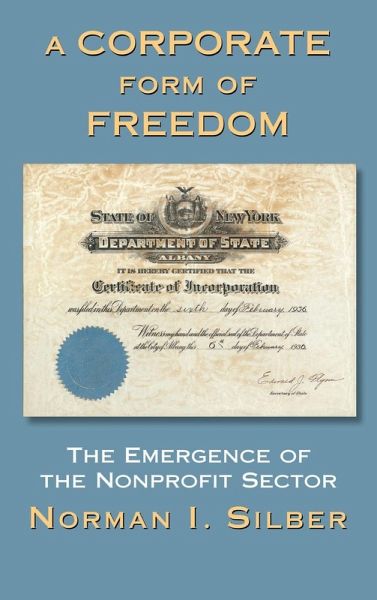
A Corporate Form Of Freedom
The Emergence Of The Modern Nonprofit Sector
Versandkostenfrei!
Versandfertig in 1-2 Wochen
171,99 €
inkl. MwSt.
Weitere Ausgaben:

PAYBACK Punkte
86 °P sammeln!
Focusing upon the laws and judicial opinions that have shaped practices in New York and in other states, this work provides an historical account to explain how and why getting a nonprofit corporate charter came to be a matter of right instead of a privilege.














